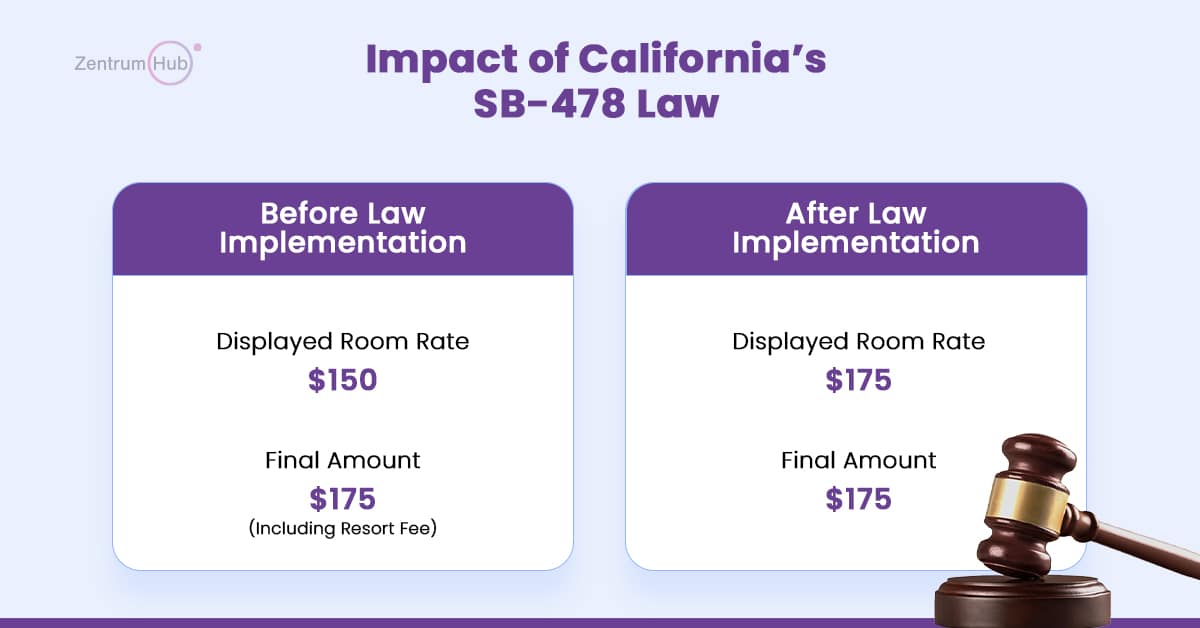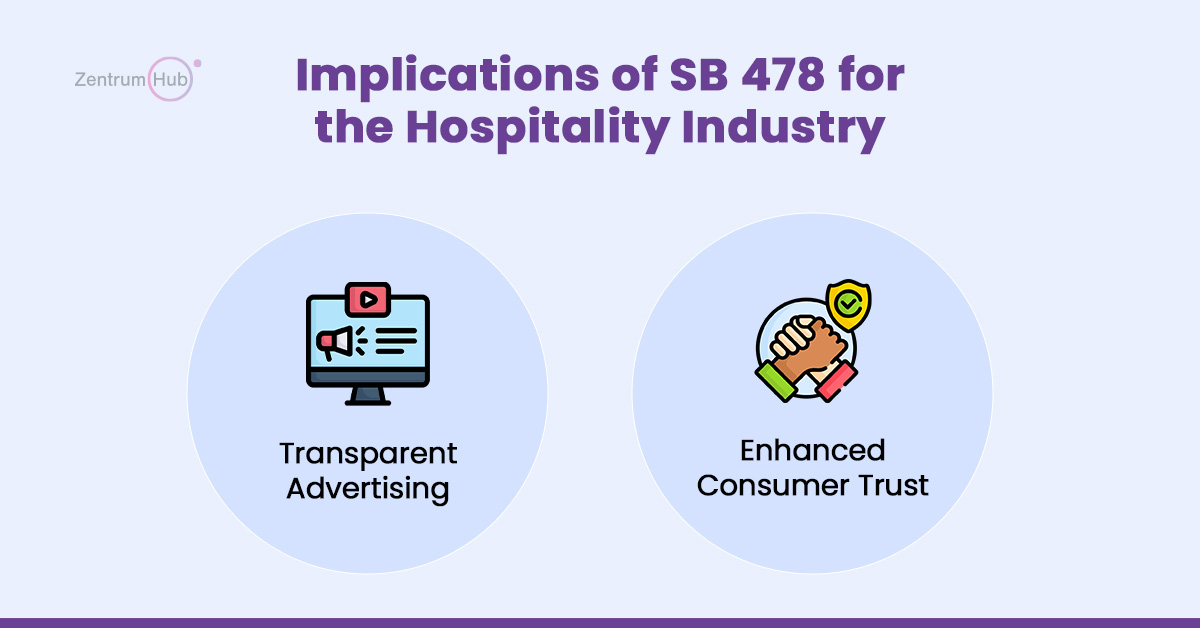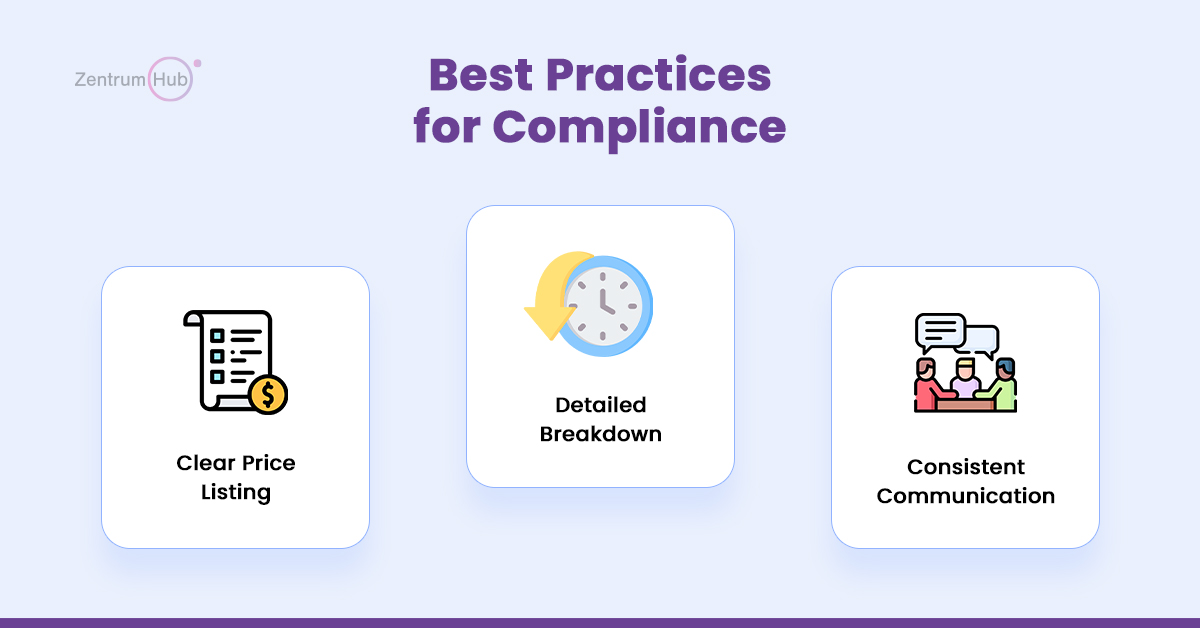Meet us at

New Delhi
25-27 Feb 2026

ITB Berlin
3–5 Mar 2026

DWTC, Dubai
4 – 7 May 2026

New Delhi
25-27 Feb 2026

ITB Berlin
3–5 Mar 2026

DWTC, Dubai
4 – 7 May 2026

California’s new law, SB 478, known as the “Honest Pricing Law,” aims to eliminate hidden fees and ensure transparent pricing for consumers. Effective from July 1st, 2024, this law mandates that businesses include all mandatory fees in the advertised price of goods and services.
This law will have significant implications for various sectors, including the hotel industry. This blog delves into how the hotels sector can navigate these new requirements, ensuring compliance while maintaining consumer trust.
SB 478 addresses consumer complaints about hidden fees, such as service fees, resort fees, and other additional charges that are often revealed only at the final stages of a transaction.
The law mandates that the advertised price must include all unavoidable fees, promoting transparency and fairness in pricing. However, it exempts government-imposed taxes, shipping costs, and certain behavior-based fees, such as penalties for smoking in non-smoking hotel rooms.

The hotel industry often employs various fees that can significantly increase the final cost to the consumer. The introduction of SB 478 necessitates a fundamental change in how these businesses present their pricing to customers.
Transparent Advertising
Hotels businesses must ensure that all mandatory fees are included in the advertised prices. This means that resort fees, service fees, and any other compulsory charges must be incorporated into the initial price shown to the consumer.
For example, a hotel that previously advertised a room rate of $150 per night with an additional $25 resort fee must now advertise the room as $175 per night.
Enhanced Consumer Trust
One of the primary benefits of SB 478 is the potential for increased consumer trust. When customers see an all-inclusive price upfront, it reduces the likelihood of unpleasant surprises during the booking process.
This transparency can enhance customer satisfaction and foster loyalty, as guests appreciate the honesty and clarity in pricing.
Challenges in Implementation of SB 478
Implementing these changes will not be without challenges. Californian hotels must review and update their pricing structures, marketing materials, and booking systems to ensure compliance. This might involve:
Best Practices for Compliance
To comply with SB 478, Californian hotels can adopt several best practices:

The primary goal of SB 478 is to protect consumers from deceptive pricing practices. By enforcing transparent pricing, the law empowers consumers to make informed decisions.
They can compare prices accurately, knowing that the advertised price reflects the total cost they will pay. This not only enhances their shopping experience but also promotes fairness and competitiveness in the market.
California’s SB 478 represents a significant step towards greater pricing transparency in the hotel industry. By eliminating hidden fees and ensuring that the advertised price reflects the total cost, the law aims to protect consumers and promote fair competition.
While the transition to compliance may pose challenges for businesses, the potential benefits in terms of increased consumer trust and satisfaction are substantial.
Hotel businesses that embrace these changes and commit to transparent pricing will likely find themselves rewarded with loyal customers who value honesty and clarity.
In summary, SB 478 is not just a regulatory requirement but an opportunity for the hotel industry to enhance its relationship with consumers, ultimately leading to a more trustworthy and competitive market.
We use cookies to improve your experience on our site. By using our site, you consent to cookies.
Manage your cookie preferences below:
Essential cookies enable basic functions and are necessary for the proper function of the website.
